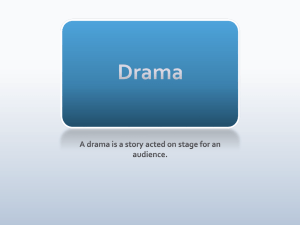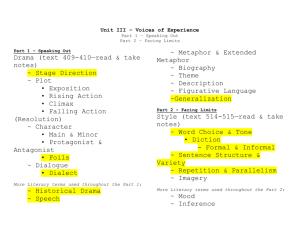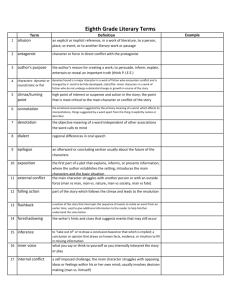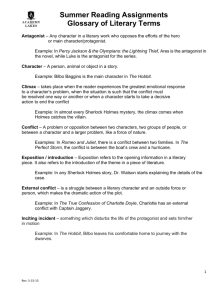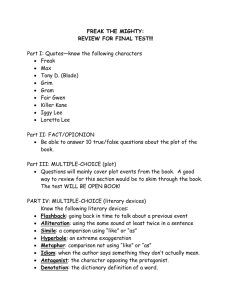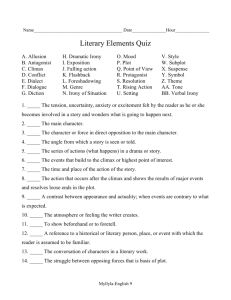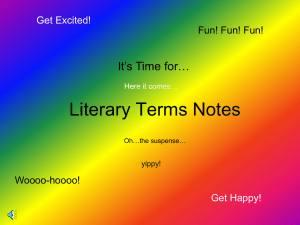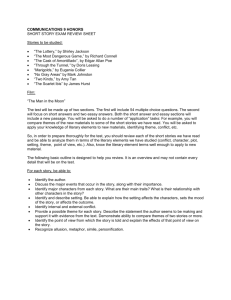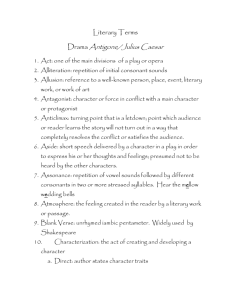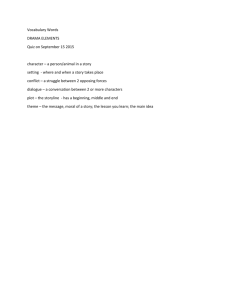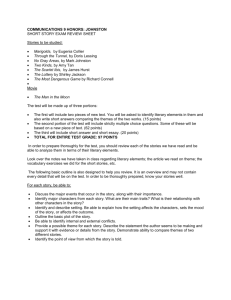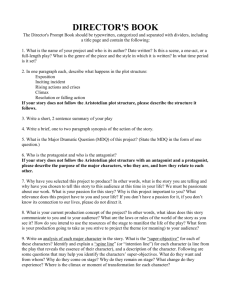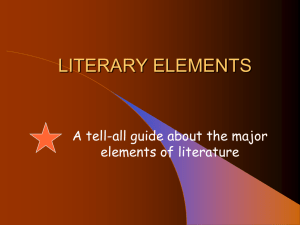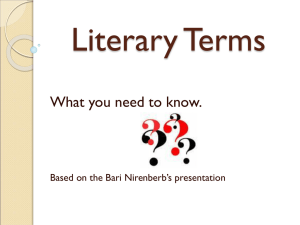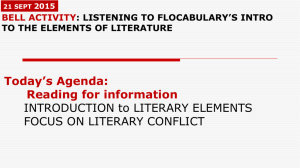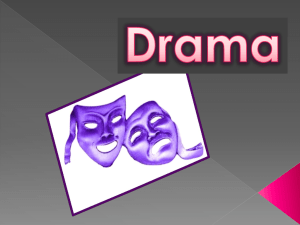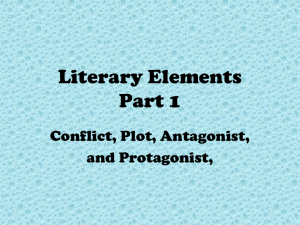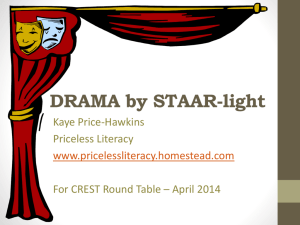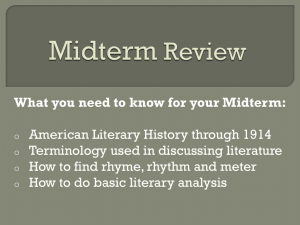DRAMA TERMS- filled in
advertisement
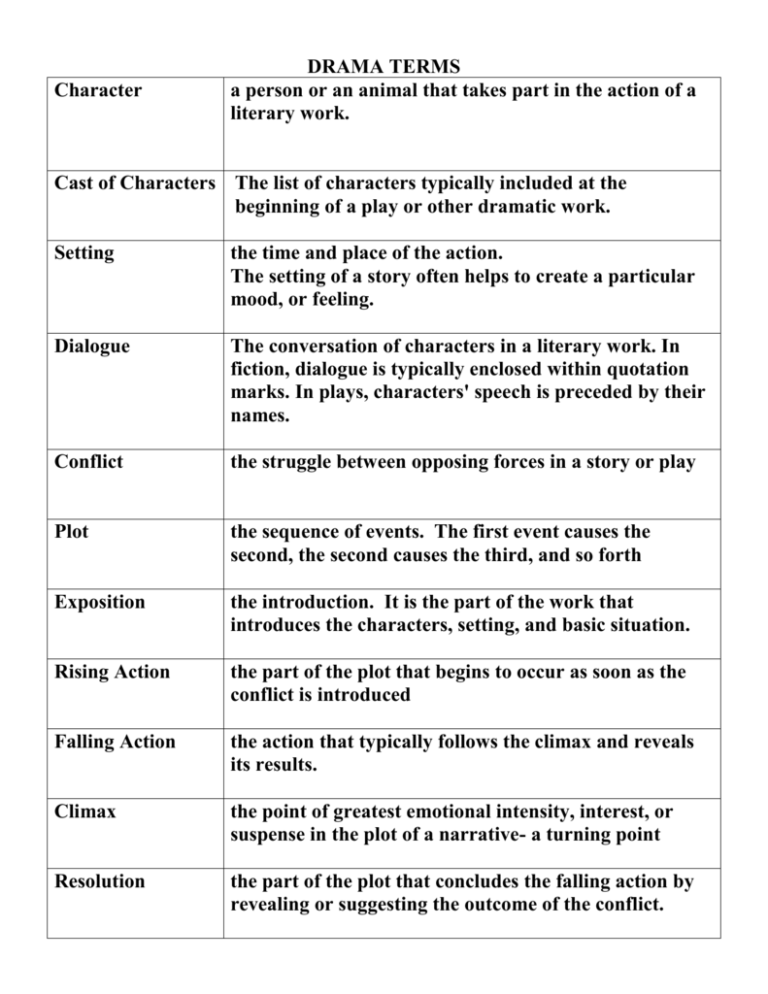
Character DRAMA TERMS a person or an animal that takes part in the action of a literary work. Cast of Characters The list of characters typically included at the beginning of a play or other dramatic work. Setting the time and place of the action. The setting of a story often helps to create a particular mood, or feeling. Dialogue The conversation of characters in a literary work. In fiction, dialogue is typically enclosed within quotation marks. In plays, characters' speech is preceded by their names. Conflict the struggle between opposing forces in a story or play Plot the sequence of events. The first event causes the second, the second causes the third, and so forth Exposition the introduction. It is the part of the work that introduces the characters, setting, and basic situation. Rising Action the part of the plot that begins to occur as soon as the conflict is introduced Falling Action the action that typically follows the climax and reveals its results. Climax the point of greatest emotional intensity, interest, or suspense in the plot of a narrative- a turning point Resolution the part of the plot that concludes the falling action by revealing or suggesting the outcome of the conflict. Flashback Foreshadowing a literary device in which an earlier episode, conversation, or event is inserted into the sequence of events. the author’s use of clues to hint at what might happen later in the story Theme of a literary work is its central message, concern, or purpose Mood the feeling created in the reader by a literary work or passage Gesture The physical movement of a character during a play Stage Direction A playwright's descriptive or interpretive comments that provide readers (and actors) with information about the dialogue, setting, and action of a play. Staging The spectacle a play presents in performance, including the position of actors on stage, the scenic background, the props and costumes, and the lighting and sound effects A type of drama in which the characters experience reversals of fortune, usually for the better. In comedy, things work out happily in the end. Comedy Tragedy A type of drama in which the characters experience reversals of fortune, usually for the worse. Aside Words spoken by an actor directly to the audience, which are not "heard" by the other characters on stage during a play. Antagonist The Antagonist is a character or force in conflict with a main character, or protagonist Protagonist The Protagonist is the main character in a literary work Suspense the growing interest and excitement readers experience while awaiting a climax or resolution in a work of literature
